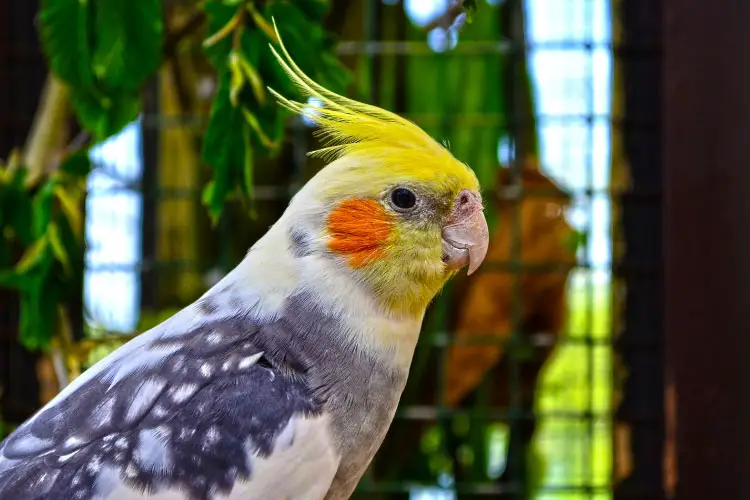Imagine your best friend (your cockatiel) has diarrhea all of a sudden, that’s got to be depressing, right? Don’t worry, we have laid down everything you need to know about diarrhea in cockatiels right here.
The main causes of diarrhea in cockatiels are abrupt changes in dietary habits, stress, and bacterial infection. So, if your cockatiel has gotten sick due to diarrhea, the first thing you should do is reorient its dietary habits and surroundings. Secondly, you should take it to an avian veterinary doctor.
Want more details on how to treat diarrhea in cockatiels? Read the guide we have provided below.
Causes And Treatments Of Diarrhea In Cockatiels
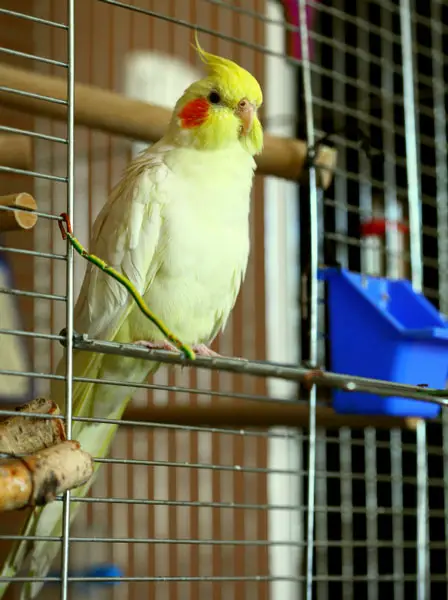
Let’s take a brief look at the main causes that are responsible for diarrhea in your cockatiel:
| Variables | Causes | Basic Treatments |
| Main Causes | Stress | Relocating the cage |
| Bacterial infection | Following doctors’ prescription | |
| Sudden diet change | Returning to the old diet or maintaining a mild diet | |
| Secondary Causes | Introduction of new cage mate | Providing separate cage for each bird |
| A dirty cage | Routine cleanup | |
| Allergy to certain food | Avoiding allergic food items | |
| Low-quality diet | Changing diet | |
| Viral attack | Following prescribed medicine | |
| An extreme change in temperature | Providing comfortable environment | |
| Presence of stomach parasite | Following prescribed medicine |
Now that you have taken a brief look over the main causes of diarrhea in cockatiels, it’s time to jump onto a detailed explanation.
So, let’s check each cause and try to understand their solution at a better depth.
1. Excessive Stress:
Cockatiels are sensitive birds. They can sense upcoming threats/ dangers in their surrounding environment. So, if your cockatiel is staying in such a place that causes fear to the bird, it can be a major source of high stress.
For instance, if house cats are lurking around the cage of your cockatiel, the bird might be extremely nervous due to the presence of a potential predator.
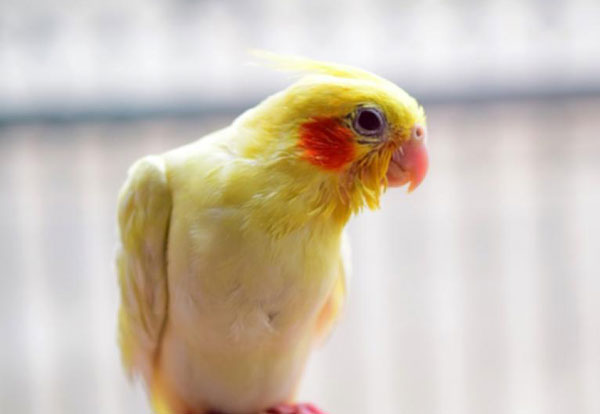
Or, the cause of stress can also be the surrounding environment itself. For example, if the cockatiel is living in an extremely noisy environment, it might also suffer from extreme stress.
Treatment:
The best solution to relieve your pet bird from stress is by relocating its cage. We suggest you move the cage to a place that has enough airflow and a quiet environment. Plus, the cage should also be away from potential predators.
2. Bacterial Infection:
Diarrhea can be caused in cockatiels by bacterial infection as well. The Centers for Disease Control and Prevention tells us that the bacteria Chlamydia Psittaci causes diarrhea in both humans and birds.
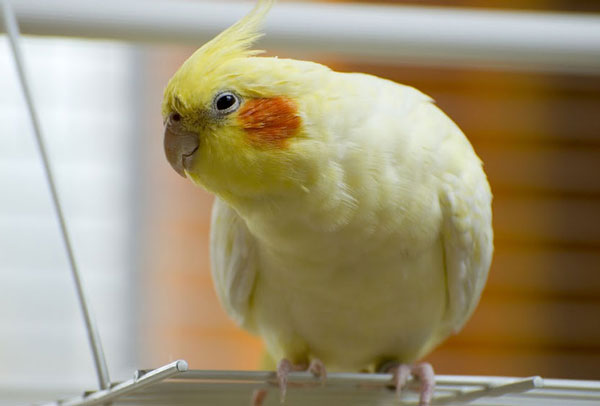
So, look for the symptoms below to pinpoint if your cockatiel is indeed infected with bacteria:
- Fully liquid feces
- Transparent/semi-transparent feces
- Lack of energy in the bird
- Frequent regurgitation
- Lack of hunger
- Absence of preening the feathers
- Absence of regular chirping
If you can notice these signs in your sick bird, you can be sure that it’s been affected by bacterial diarrhea.
Treatment:
The only treatment for a bacterial infection is going to a veterinary doctor and following the given prescriptions. Doctors might give some antibacterial medication so the bird can get rid of the bacterial infection as soon as possible.
3. Sudden diet change
Wild cockatiels are extremely adaptive birds. They can adapt to many types of food very fast. However, domestically raised cockatiels are not as fit as the wild ones. Therefore, pet cockatiels can easily get sick if it goes through an abrupt change in diet.
For instance, if your cockatiel is accustomed to eating dry foods, it can get sick due to having new types of liquid food all of a sudden.
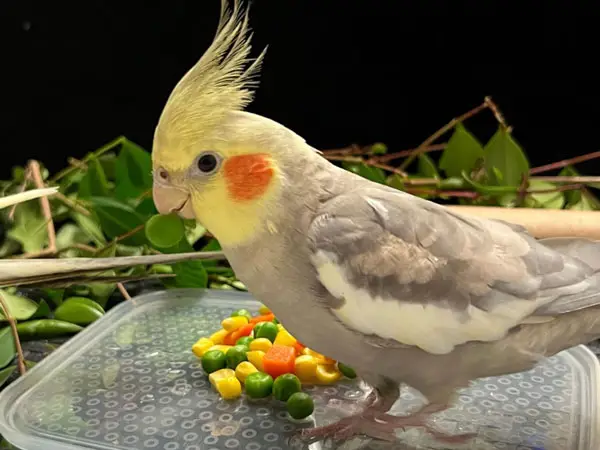
Or, if your cockatiel is used to having vegetables and fruits, it can get diarrhea by suddenly changing its diet to ready-made pallets and seeds.
Treatment:
Provide the former diet to your cockatiel. However, if there is an actual need to permanently change the diet for the pet bird, do the change gradually.
For example, we recommend taking at least 2 weeks to change the diet of your cockatiel.
4. Introduction of a new cagemate:
If you keep your pet cockatiel with a new cagemate, this can also be the cause of diarrhea. Why? Because, a new bird can bring bacterial germs into the cage.
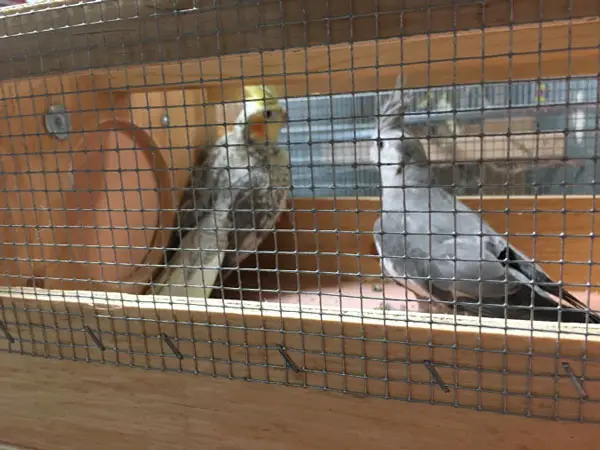
Treatment:
Do not suddenly put a new bird into the cage of your old pet cockatiel. Rather, it’s better to keep different birds in different cages.
However, you can let the birds spend time together in a single cage for a few hours a day. Gradually, it might become possible to keep both types of birds in one cage soon.
Specifically, it takes at least one week for a cockatiel to get accustomed to a new pet bird around.
5. A dirty cage:
Keeping your pet friend’s cage dirty can be a prime cause of diarrhea. If you are lazy about cleaning the droppings/feces from the cage of your pet bird, there’s a high chance that remnants of feces will enter into the food items of that bird.
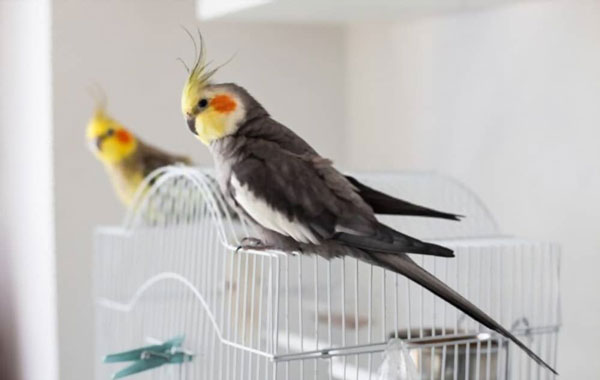
Consequently, the bird can catch diarrhea very easily.
Treatment:
The treatment for this cause is straightforward. Along with other treatments, make sure to clean up the cage of your bird every week.
6. Allergy to food items:
As a pet bird, a cockatiel can be allergic to many food items. For example, some cockatiels might like to eat chocolate and others might be highly allergic to it. That’s why an allergic reaction to certain food can be the cause of diarrhea in cockatiels.
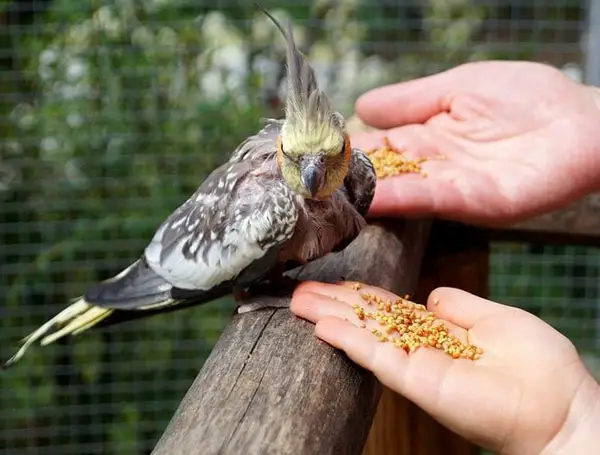
Treatment:
Find out which food causes an allergy in your pet friend. Make sure not to serve that allergic food anytime soon.
7. Low-quality diet:
A low-quality dietary list can also cause diarrhea in cockatiels. For instance, if you are not giving fresh vegetables, fruits, and water to your cockatiel, it will catch diarrhea very fast.
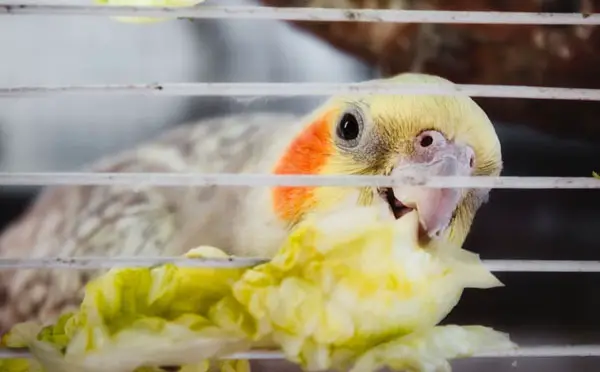
Treatment:
Make sure to provide a well-balanced collection of food for your pet bird. Plus, ensure that the food you provide to your bird is all fresh.
A well-balanced dietary list for cockatiels can consist of vegetables such as tomatoes, sprouts, beans, carrots, etc. It should also have healthy fruit items such as apples, avocados, coconuts, etc. Plus, don’t forget to give some protein items to your cockatiel as well.
7. Viral attack
According to a 2005 study, the H5N1 virus can cause bird flu in pet birds. As a result, birds can suffer from chronic diarrhea.
Treatment:
There’s no official immediate cure for a viral attack in pet birds. However, we suggest that you see a vet ASAP to make sure your pet cockatiel is indeed infected with a virus.
If it’s carrying any virus, the doctor will provide an adequate diet list for the bird.
8. Extreme temperature change:
As we have mentioned above, pet cockatiels are prone to abrupt changes in their surroundings. That’s why a sudden rise or fall in temperature can be the cause of diarrhea in your pet friend.
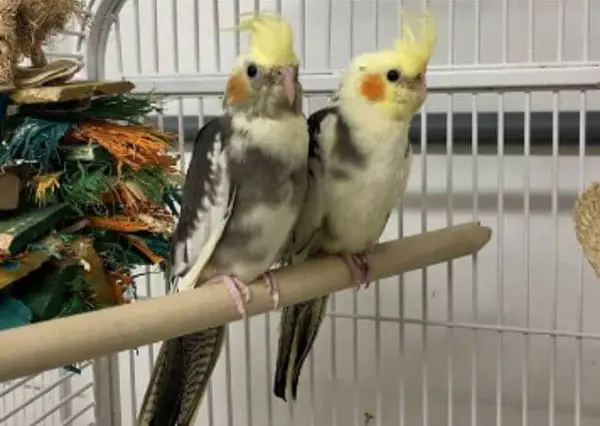
Treatment:
If your cockatiel is prone to an extremely cold environment, give a source of heating around it. We recommend keeping the bird near a fireplace or a warm light bulb.
On the other hand, if the bird is very sensitive to hot weather, make sure that its cage is not in direct sunlight. Moreover, provide a cooling device for your ped cockatiel (a fan or air cooler should be fine).
9 . Presence of stomach parasite
According to the Centers for Disease Control and Prevention, Giardia infections in pet birds’ intestines can cause them to suffer from chronic diarrhea. So, there’s a high chance that your pet cockatiel might be suffering from diarrhea because of stomach parasites (such as the Giardia) as well.
Treatment:
The specific treatment for rectifying any existing stomach parasite in your pet cockatiels intestine is to take help from a professional veterinary doctor.
Related Questions
Here are a few relevant questions regarding diarrhea in cockatiels. Don’t forget to take a look.
The main symptom of diarrhea in pet birds is droppings in liquid form.
Generally, feces from birds will be semi-solid in nature. However, if your bird is leaving liquid feces for 3 consecutive days, you can be sure it’s gotten diarrhea.
It is possible to provide the basic and preliminary treatment of diarrhea for your pet bird at home. However, in order to be 100% safe, you may have to take your cockatiel to a veterinary doctor.
You should provide a mixture of water and glucose for your cockatiel. This will make sure that it has enough physical strength even when going through diarrhea. Plus, you can also provide probiotics to your bird so the bad bacteria can leave the body very soon.
Final Takeaway
In most cases, high levels of stress and bacterial infection is the main cause of this disease. Therefore, the treatment is pretty straightforward.
However, to be 100% sure of what is causing diarrhea, we always recommend seeing a veterinary doctor as soon as possible. The treatment prescribed by the doctor will be most effective in all cases.
